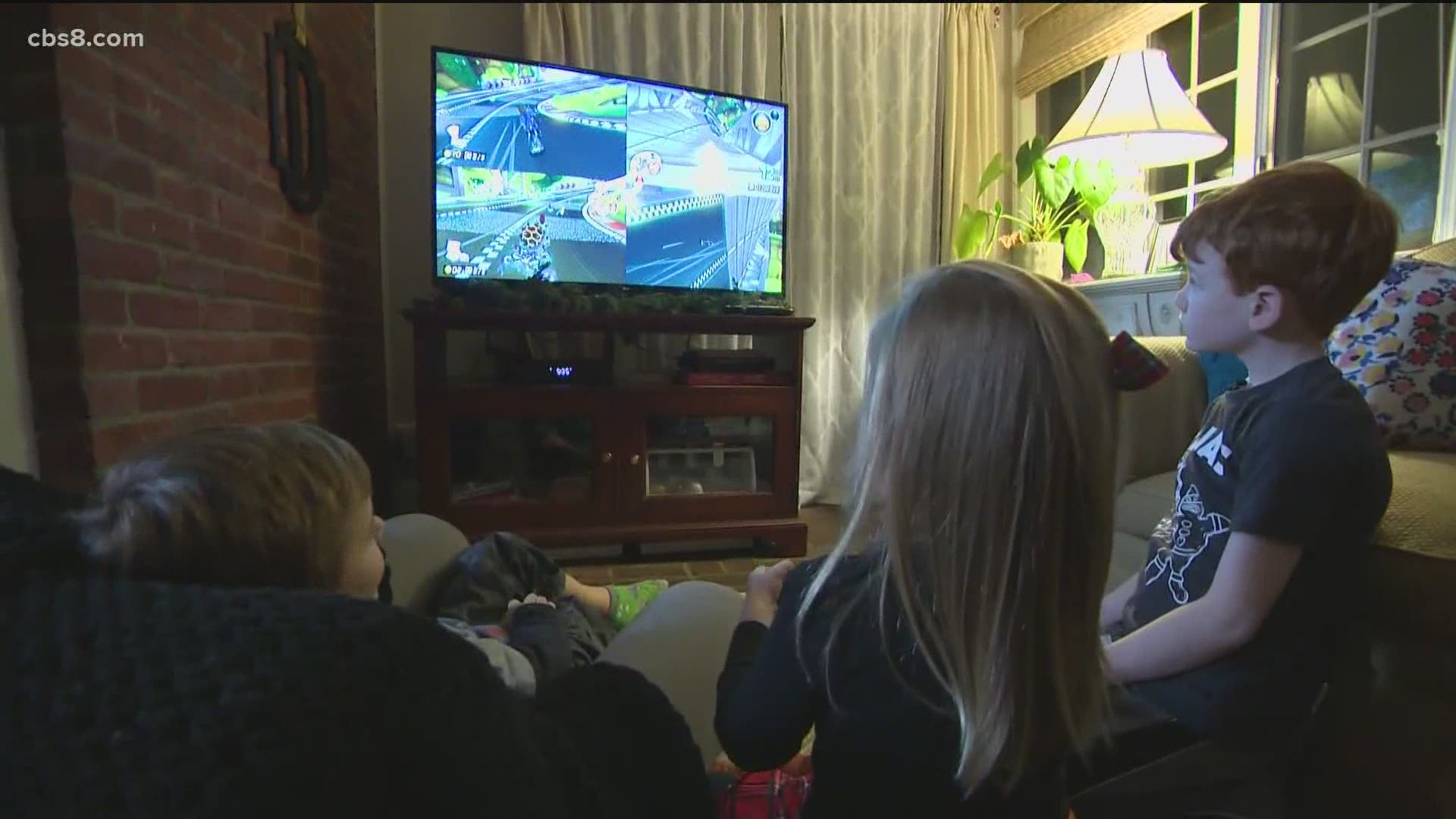SAN DIEGO — As this pandemic continues and with a new stay-at-home order now in place in Southern California, some kids are turning to their devices more and more.
They may also be struggling emotionally. With many schools still closed, and even more restrictions in place, a lot of kids are getting bored. Some are even depressed.
Oftentimes, devices are a way to deal with that, but a specialist News 8 spoke with said it's important to consider some alternatives.
"If they're glued to the device, we're not influencing our kids someone else is," said Joshua Andrus, a San Diego parent of three.
Andrus is also an addiction specialist who runs an organization called Parents Overcoming Electronics. It focuses on tech addiction in kids, an area often overlooked when it comes to resources.
"There's nothing really available except for parents to say get off your devices which is not effective," said Andrus.
Andrus started writing a series of books to help inspire kids with alternatives. That has since transitioned to dealing with the emotional toll this pandemic has had.
His latest title is called "Thriving During COVID and Beyond."
"It's allowing parents to sit with their children in a macro focus," he said. "So, I’m sitting here knowing this is a problem and I'm going to start reading to my kids again and from that I'm going to gain awareness from the lessons as a parent and my child also gains awareness."
His first tip: get your child's attention by asking them about the things they're interested in online. That sparks conversation and shows engagement.
Next, suggest what Andrus calls high quality time, like a board game or chess.
"They don't get bored as easy as you think because they have a void that is not getting filled on devices, but is getting filled with that love and attention," he said.
Other ideas include letting them experience first-hand the things they're watching or playing online.
"When there's not a stay-at-home order, do we go and find those opportunities for our kids to find the texture of the world?" he said.
Andrus said the key is balancing watching versus doing.
"In other words, this YouTube my child is watching that is doing the babysitting, in some ways that's what's happening," he said. "Does it get balanced with, like, my kids I love for them to create."
Andrus advised parents look out for signs that could point to a bigger problem. Kids sometimes turn to devices because they're depressed. Other behaviors will change as well.
"A messy room, a child that doesn't shower," he said.
Finally, use this pandemic to inspire growth, not hinder it.
“They've experienced this, they've survived this, and they can grow if they see it in a certain way," said Andrus.


